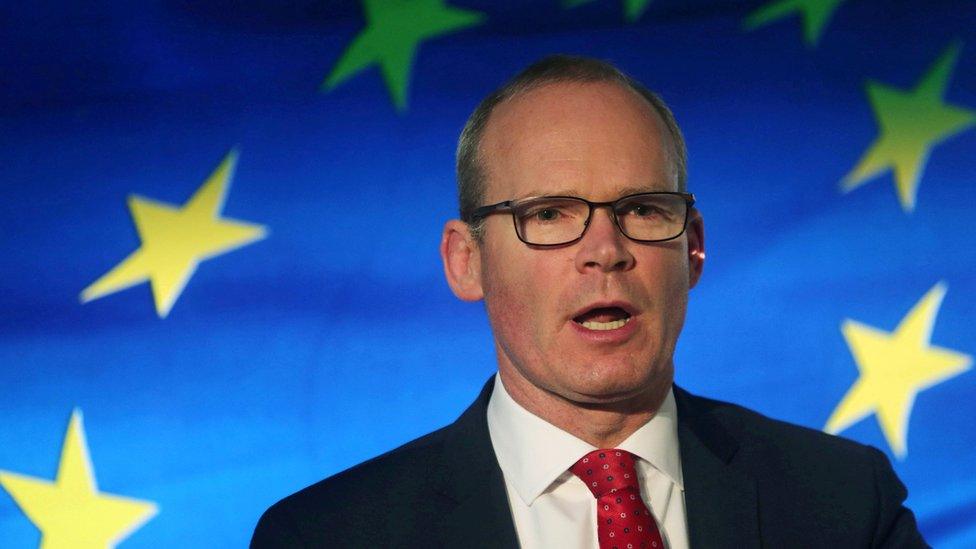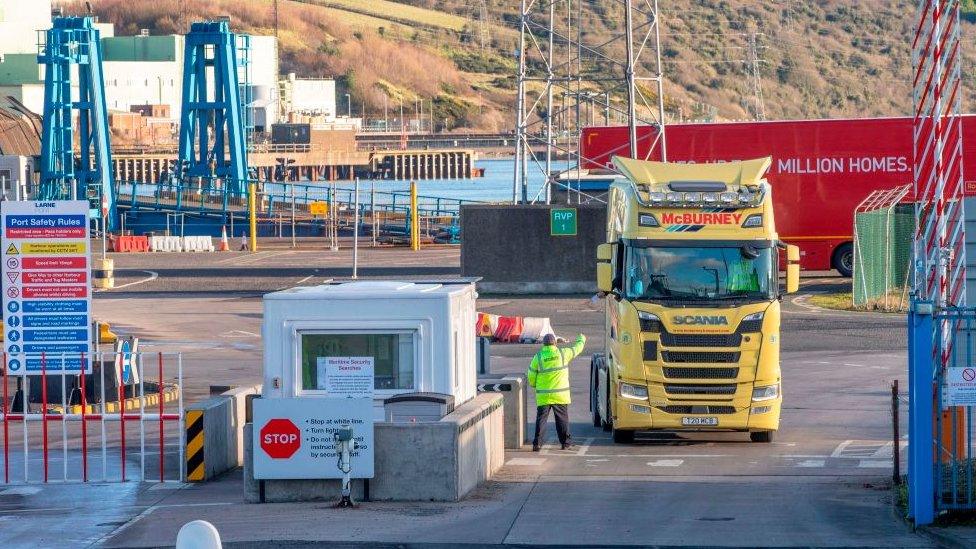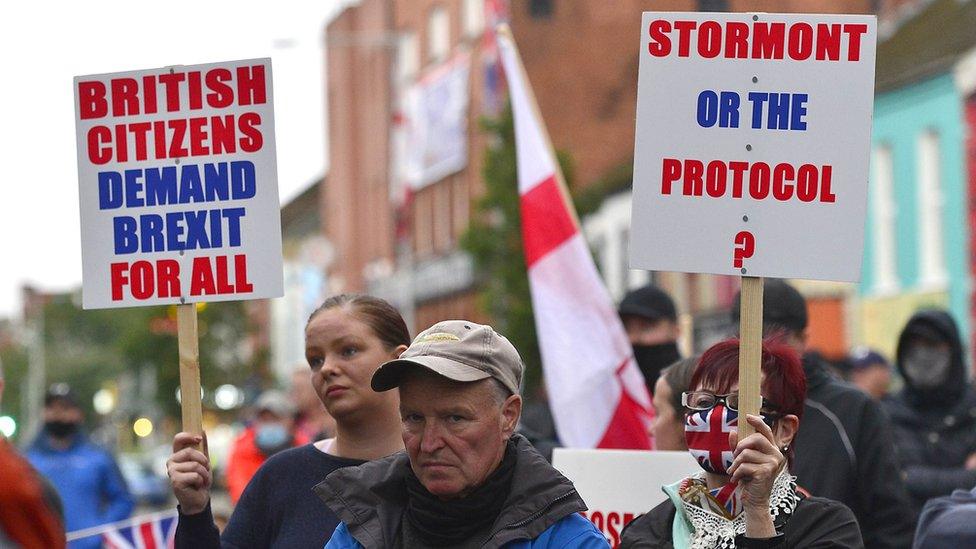Brexit: Simon Coveney says triggering Article 16 'unlikely'
- Published

Triggering Article 16 to override parts of the Northern Ireland Protocol would be a "hugely problematic backward step", Ireland's foreign minister has said.
Simon Coveney said it would be a "huge mistake" as attempts are made to build trust between the negotiating teams.
But he said it was unlikely the UK government would take the step.
It comes after a BBC News NI interview with the prime minister during which he did not rule out triggering Article 16.
Boris Johnson said he wanted the EU to present proposals to fix the protocol.
He said he believed the protocol could "in principle work" if it was "fixed".
But he also did not rule out triggering Article 16 if the EU failed to come up with plans to deal with current issues.
Boris Johnson said he believes the Northern Ireland Protocol could "in principle work" if it was "fixed".
Mr Coveney told broadcaster RTÉ it was his understanding the British government was "not likely to trigger Article 16".
"It would be a hugely problematic backward step in relationships between the UK government and the EU institutions at a time actually when we are trying to build trust between the Šefcovic and Frost teams," Mr Coveney said.
"The idea of that, when I think both sides know that this month is going to be a very important month, particularly the second half of it, I think that would be politically a huge mistake."
NI Protocol
The Northern Ireland Protocol is a post-Brexit trade arrangement which was agreed by the UK and the EU in order to avoid the reintroduction of a hard border on the island of Ireland.

Post-Brexit goods checks are being carried out at Northern Ireland's ports due to the protocol
Under the terms of the protocol, Northern Ireland must still apply EU single market rules at its ports, in order to avoid the need for checks along the Irish land border as goods enter the EU.
In practice, this means some products moving from Great Britain to Northern Ireland have been subject to new checks, which has angered many unionists who feel this is damaging trade, supply lines and Northern Ireland's position within the UK.
Related topics
- Published1 October 2021

- Published2 February 2024
